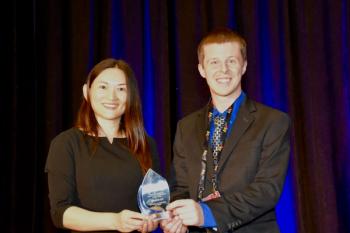
Mike Doyle to Receive the Coblentz Society's 2014 Williams-Wright Award
Michael Doyle, a founder and CEO of Axiom Analytical (Tustin, California), and the president of Symbion Systems (Tustin, California), will receive this year's Coblentz Society Williams-Wright Award.
Michael Doyle, a founder and CEO of Axiom Analytical (Tustin, California), and the president of Symbion Systems (Tustin, California), will receive this year’s Coblentz Society Williams-Wright Award. The award is presented annually to an industrial spectroscopist who has made significant contributions to vibrational spectroscopy while working in industry.
Doyle received his PhD in Physics from the University of California at Berkeley, where he started his spectroscopy career with a thesis on magnetic resonance spectroscopy. After receiving his PhD, Doyle entered the field of laser development, first at Hughes Aircraft Company (Glendale, California), and then at Philco-Ford Corporation (Philadelphia, Pennsylvania) where he carried out extensive R&D in the development of lasers and solid-state optical devices. He co-founded Laser Precision Corporation (Libertyville, Illinois), where he was instrumental in the design of most of the company’s measuring instruments, including single purpose dispersive spectrometers.
In the mid-1970s, Doyle became involved with FT-IR spectroscopy. With a goal of making it possible to employ FT-IR in a chemical processing environment, he established Analect Instruments as a Division of Laser Precision.
In the 35+ years since founding Analect Instruments, Doyle’s technical career has been devoted to furthering the potential of industrial spectroscopy. After designing the first FT-IR spectrometer, he moved on to developing robust optical transfer systems and a steady stream of innovations in mid and near-IR probes, multiplexers, and other industrial sample interfacing devices. Recently, he cofounded Symbion Systems, a company devoted to providing software for online process analysis.
Doyle has authored numerous papers published in scientific journals. He was honored at the 1998 Eastern Analytical Symposium as one of 10 living “Pioneers of FT-IR Spectroscopy.” He holds more than 50 patents.
Newsletter
Get essential updates on the latest spectroscopy technologies, regulatory standards, and best practices—subscribe today to Spectroscopy.




